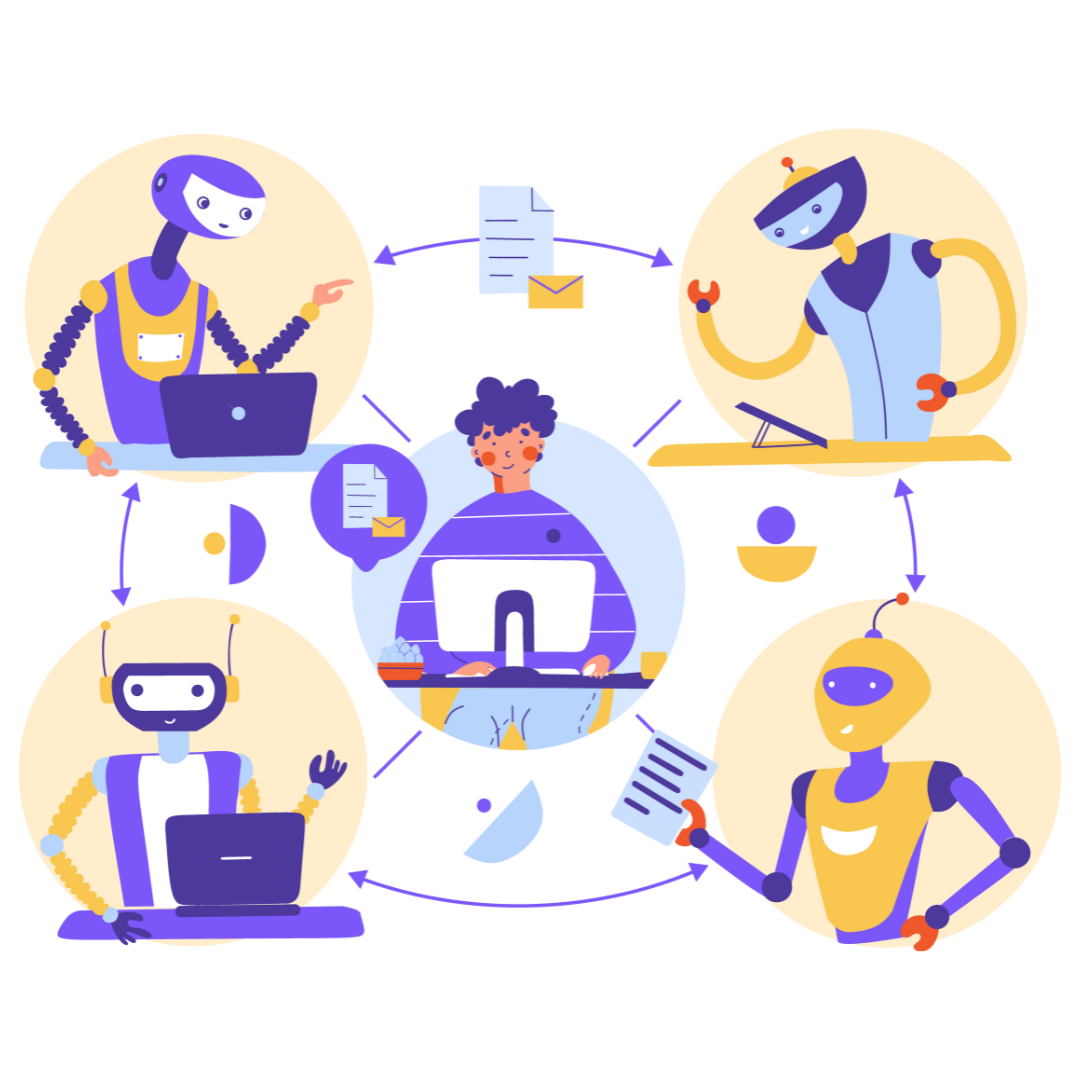TRAINING
IT AUTOMATION
IT Automation is the use of software and systems to create repeatable instructions and processes to replace or reduce human interaction with IT systems.


 Comprehensive DevOps : Beginner, Intermediate, Advanced
Comprehensive DevOps : Beginner, Intermediate, Advanced
 Basic & Advanced DevOps
Basic & Advanced DevOps
 Ansible, GIT & Terraform
Ansible, GIT & Terraform
 Docker and Kubernetes
Docker and Kubernetes
Duration: 120 hours / 15 days
19 Lessons
Upon completion of all three modules, students will have a comprehensive understanding of DevOps principles, practices, tools and will be well-prepared to implement DevOps strategies in a professional environment.
MODULE 1 – BEGINNER
Introduce students to fundamentals of DevOps, including basic tools, concepts and practices.
Introduction to DevOps
DevOps Tools and Environment Setup
Continuous Integration (CI) Basics
Configuration Management
Continuous Delivery (CD) and Deployment
Monitoring and Logging
Practical Lab Exercises
MODULE 2 – INTERMEDIATE
Build on foundational knowledge with more advanced DevOps practices, tools, and techniques.
Advanced Version Control and Collaboration
Advanced CI/CD Pipelines
Advanced Configuration Management
Container Orchestration with Kubernetes
Cloud Infrastructure and Services
Security in DevOps
Practical Lab Exercises
MODULE 3 – ADVANCED
Prepare students to tackle complex DevOps challenges and implement robust, scalable DevOps practices in real-world scenarios.
Advanced Monitoring and Performance Tuning
Scalable and Highly Available Infrastructure
Advanced Containerization Techniques
DevOps for Microservices
Advanced Cloud Native DevOps
DevOps Culture and Transformation
Capstone Project
Duration: 80 hours / 10 days
9 Lessons
By completing both parts of this comprehensive DevOps training program, you will gain a solid foundation in DevOps principles, essential tools, and best practices.
You will develop practical skills in Linux, AWS, Git, Terraform, Terraform Cloud, Ansible, Prometheus, and monitoring, enabling you to effectively collaborate between development and operations teams, automate infrastructure, and enhance software delivery processes.
PART 1: BASIC DEVOPS (40 HOURS)
Module 1: Introduction to DevOps
Module 2: Linux Fundamentals
Module 3: AWS Fundamentals
Module 4: Version Control with GIT
PART 2: ADVANCED DEVOPS (40 hours)
Module 5: Infrastructure as Code with Terraform
Module 6: Terraform Cloud
Module 7: Configuration Management with Ansible
Module 8: Monitoring and Alerting with Prometheus
Module 9: Real-Life Examples and Case Studies
Duration: 100 hours / 13 days
15 Lessons
Use of Ansible to automate the configuration management process, GIT for version control and Terraform to automate the infrastructure provisioning.
Module 1: GIT Introduction
Module 2: GIT Branches
Module 3: Initialize Remote Repositories in GIT
Module 4: Rebasing in GIT
Module 5: Resetting and Reverting in GIT
Module 6: Introduction to Ansible
Module 7: Ansible Concepts
Module 8: Installation and Configuration of Ansible
Module 9: Conditionals, Loops & Roles in Ansible
Module 10: Introduction to Terraform
Module 11: Getting Started with Terraform
Module 12: Terraform Basics
Module 13: Working with Terraform
Module 14: Terraform with AWS
Module 15: Monitoring and Alerting with Prometheus
Duration: 100 hours / 13 days
9 Lessons
Build, test, and deploy Docker applications with Kubernetes while learning production-style development workflows.
Learning Docker, Kubernetes and its benefits and usage in the market.
Module 1: Understanding the Benefits of Containers
Module 2: Dive into Docker
Module 3: Manipulating Containers with the Docker Client
Module 4: Docker Compose
Module 5: Docker Hub & Docker Swarm
Module 6: Understanding Kubernetes Architecture
Module 7: Kubernetes Cluster Installation & Configuration
Module 8: Workloads & Scheduling in Kubernetes
Module 9: Services & Networking in Kubernetes


